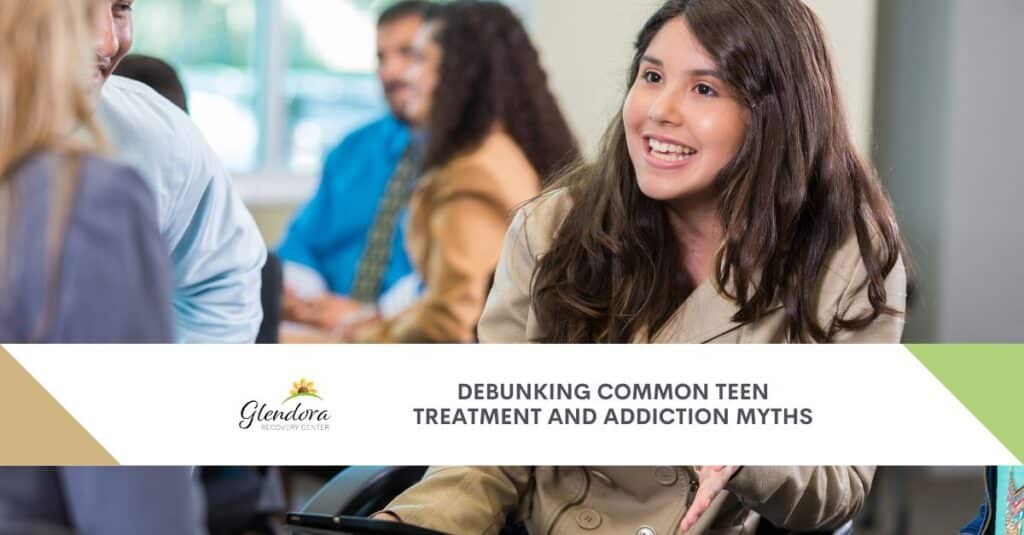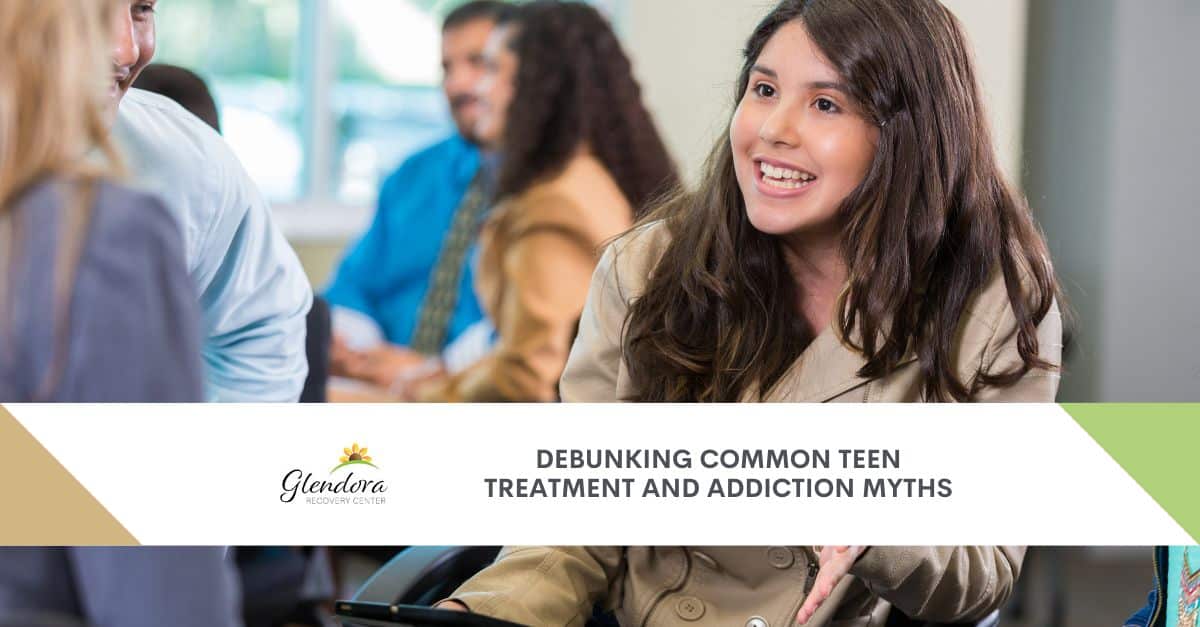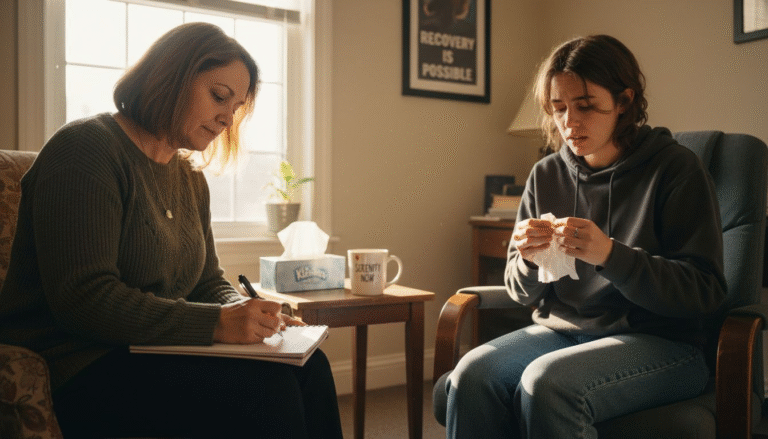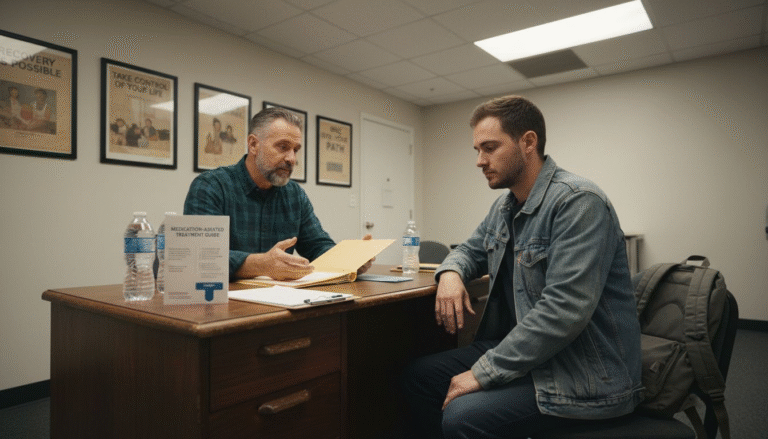There is a lot of misinformation and stigma that comes along with substance abuse problems. Some of the misconceptions and teen treatment myths that are spread about drug rehab can hinder the progress of those looking for treatment options. See if any of these misconceptions about adolescent mental health you held onto are true. Then, get the right information out there to help young adults and teenagers feel less shame about getting mental health care.
Myth: I’ll Get Fired If I Seek Treatment
If you or someone you care about requires addiction treatment, you have the support of the law. Neither your addiction nor your decision to enter treatment can be used as grounds for termination. However, it is really important that you are forthright with your employer about your addiction and your intentions to seek treatment. By doing so, they can better meet your needs and ensure you receive the appropriate care.
It’s natural to worry about one’s job security if oneself or a loved one is considering participating in rehabilitation programs. If you’re worried about losing your job due to your addiction, you shouldn’t be; the law protects you.
Myth: Addiction Only Affects Bad Teenagers.
Addiction is not a reflection of a person’s moral compass and should not be viewed as a defect in their character. As such, it merits the same medical and psychological attention as any other disease. Caring parents only want what’s best for their kids, so they wouldn’t ever teach or encourage their teenagers to be unhealthy.
Myth: Teenage Treatment Doesn’t Work and People Can Overcome Addiction Through Sheer Force of Will
Probably the worst myth about rehabilitation centers is that they are ineffective. The effectiveness of rehabilitation programs has been repeatedly demonstrated. As an illustration, many studies have shown that those who take part in treatment have a much higher chance of maintaining their sobriety than those who do not. Additionally, there is a decreased risk of relapse among those who finish treatment.
Substances that alter consciousness eventually alter the normal structure and function of the brain. The neurochemical and physiological processes in the brain have an effect on behavior and thought. Willpower is a brain component that can be affected by this procedure, especially through chronic drug use. While parents can help their children in many ways, they cannot restore damaged brain tissue.
Myth: There Is A Lack Of Control and Discipline At Home
Extreme addiction rejects all forms of control and order. Addiction-influenced thoughts and actions in teenagers are resistant to parental punishment. Put another way, you can be the most overprotective parent in the world, but that won’t stop your teen from being influenced by their peers or from exploring new things out of pure curiosity if they come into contact with drugs. But there are things you can do to help your teenager succeed, such as keeping an open line of communication with them, establishing fair standards at home, and maintaining an ever-present presence.
Myth: Parents Are Not Involved With Their Kids
You can’t be in two places at once, no matter how hard you try. It’s unrealistic to expect to be present at every social event, whether it’s a school dance, a sleepover, a sports game, or even a study session with friends. Teenagers also benefit from having time to themselves. No matter how careful a parent is, their child may still be vulnerable to drug abuse and addiction at a young age.
In other words, a teen’s drug or alcohol abuse does not necessarily reflect problems at home. In other words, parents are responsible only for what occurs within the four walls of the home and have no real control over what their children do when they leave the house.
Myth: The Parents Should Have Been Able to Cope
This is a dangerous and common misconception about drug use among young people. Despite what you may have heard, trying to treat your child’s addiction on your own, without seeking professional assistance, is almost always a bad idea. Millions of people, both young and old, struggle with addiction each year. Getting your teen into treatment for their addiction is not only the responsible and proactive thing to do, but it also shows how much you care about them.
The One Fact: Prevention is Equal to Education.
Teenagers are taking huge risks because they have access to drugs and alcohol but aren’t fully informed about the consequences of their actions. Similarly, many adults in charge of teenagers fail to grasp the complexity of drug abuse and addiction. Myths about adolescent drug abuse can and should be clarified, thus opening the door to much-needed treatment. Understanding addiction is the first step in fighting it.
Contact Us and Get Started On Your Recovery Today
If you have any more questions, please don’t hesitate to contact us. Don’t hold back from getting help for addiction if you or someone you know needs it. The Glendora Recovery Center is a premier facility that provides a wide variety of treatment options for those in need of help. To schedule an appointment today, please call (626) 594-0881.





